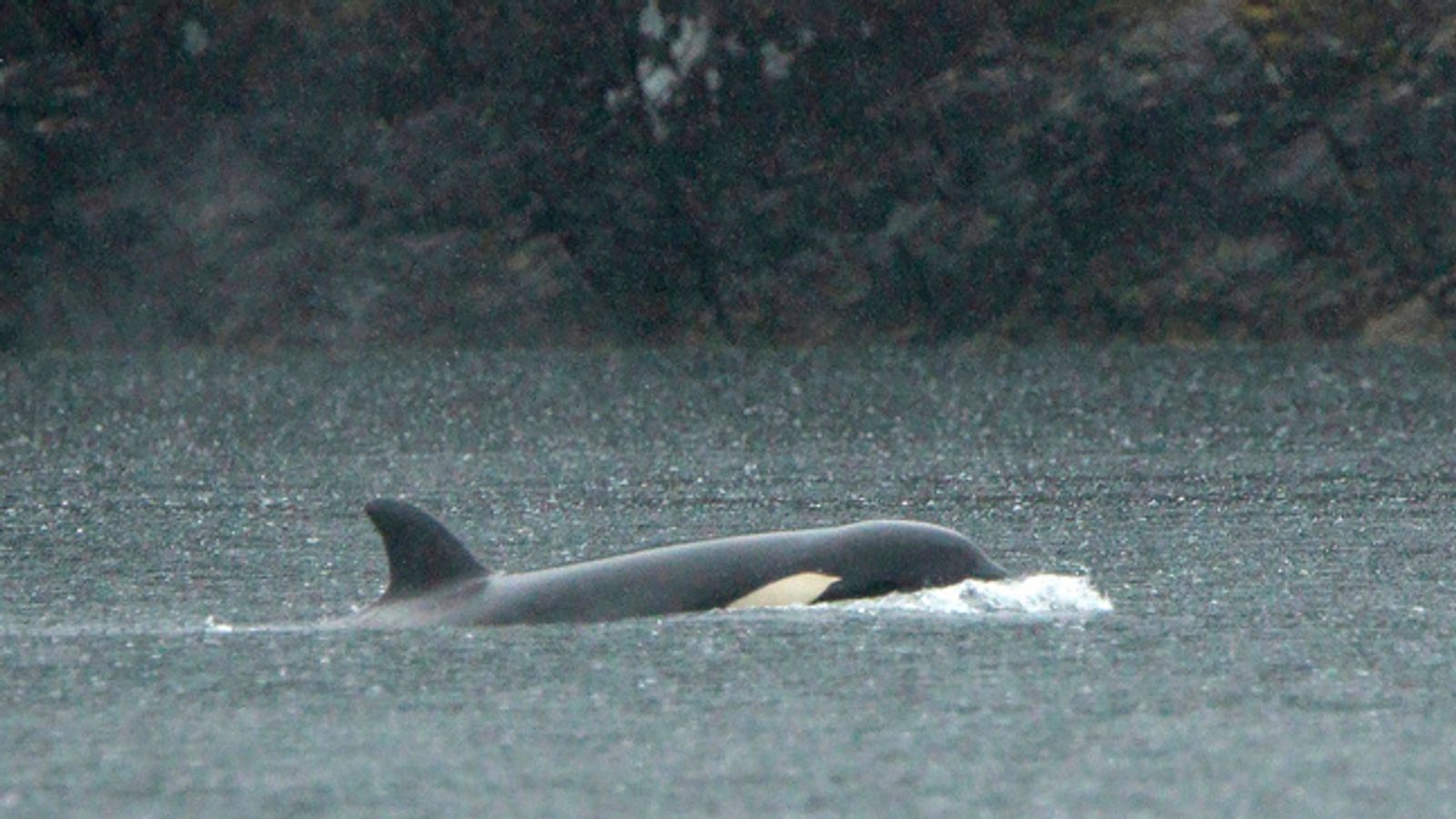Rescue efforts are under way to save a killer whale stranded in a remote tidal lagoon off Canada’s Vancouver Island.
The young orca calf will be airlifted by rescuers with the hope of reuniting the two-year-old with its extended family, according to Canadian authorities.
Canada’s fisheries department and First Nations officials said there are plans in place to put the calf in a sling to be lifted out of the lagoon by helicopter.
The young whale will then be put in a net pen in the ocean while awaiting a reunion with its extended family.
Ehattesaht First Nation council, fisheries department officials and marine technical experts gave the nod for the plan to go ahead.
Rescuers have been unable to coax the young whale out of the area since its pregnant mother died after becoming stranded at low tide in the lagoon last month.
Ehattesaht First Nations chief Simon John spoke of his people having deep cultural and spiritual connections to orcas.
Canada refuses to apologise over British children abuse scandal
Ottawa: Four children among six killed in Canadian capital
Edward Burtnysky on climate crisis: ‘We should be screaming fire… but we’re rearranging deck chairs on the Titanic’
Read more from Sky News:
Mystery over whales’ singing uncovered by study
Weather warnings issued across UK
As the rescue efforts commence, it may still take anywhere from a few days to two weeks to retrieve the young orca whale, according to Paul Cottrell, a marine mammal coordinator with the fisheries department.
“And it’s not, definitely not, going to be an easy road ahead. But everybody’s optimistic and really working together to make this happen,” Mr Cottrell told the Vancouver Sun.
He went on to say that “just looking generally at the animal, it’s very active. It doesn’t look emaciated at all, no peanut head”.
Peanut head is a term used by whale researchers to describe the condition of malnourished killer whales, who develop a peanut-shaped profile after losing fat.






















